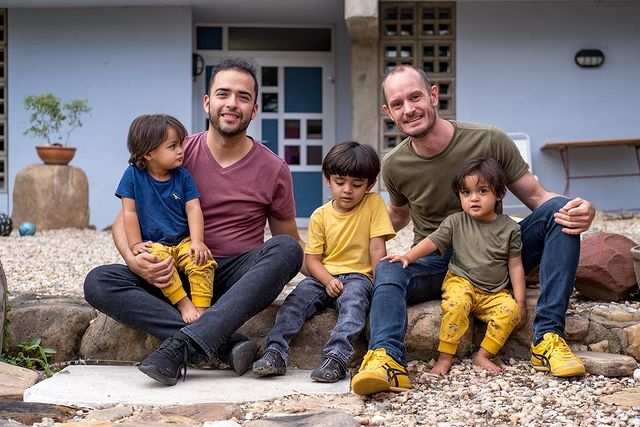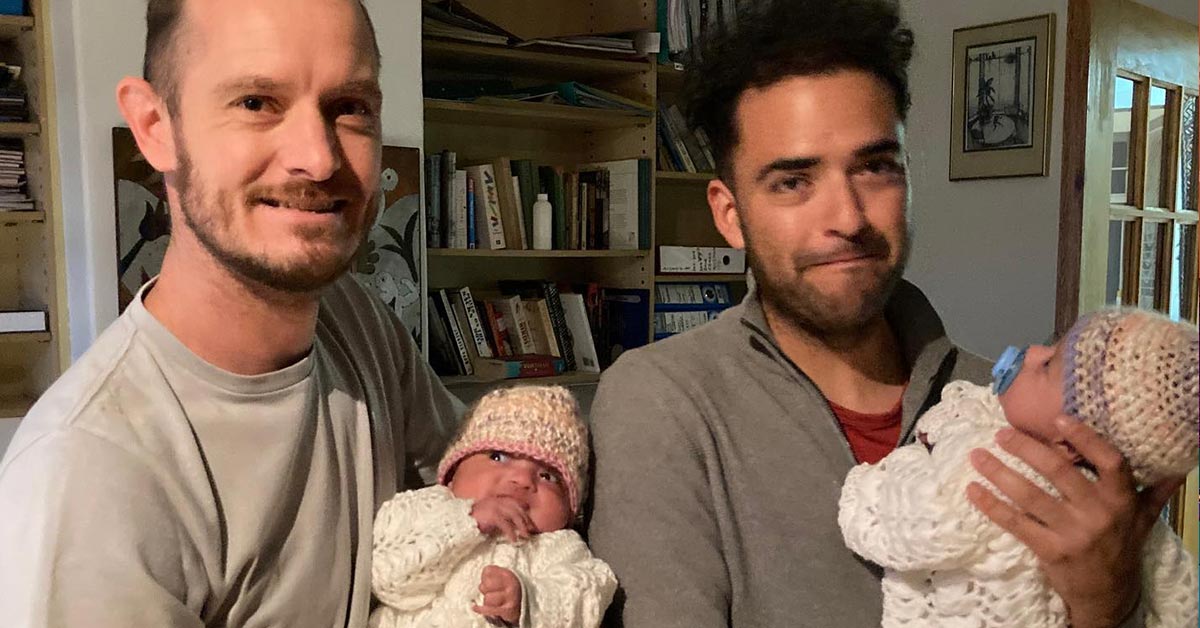Namibian officials balk at Supreme Court’s approval of foreign same-sex marriage
Home Affairs minister says he’s awaiting further instructions

By Daniel Itai
A brouhaha is brewing between the Namibian government and some civil society organizations over last month’s verdict by the Supreme Court that ordered the Home Affairs Department to recognize foreign same-sex unions.
The Supreme Court issued its verdict on an appeal by Mexican Guillermo Delgado and his Namibian husband, Phillip Lühl, who were married in 2014 in South Africa. They argued that their marriage should be recognized so Guillermo could be granted a spousal visa.
In response, the Namibian Government, led by the governing party SWAPO, seems to be considering a challenge to the Supreme Court ruling, although no official announcement has been made.
Some civil society organizations, including the Equal Rights Namibia Movement, have called on the government to respect the Supreme Court verdict.
Meanwhile, Delgado and Lühl are appealing in court to get Namibian citizenship for their children, including twins who were born to a surrogate mother in South Africa. All of them are together in Namibia.
Home Affairs Minister Albert Kawana said the Ministry will not process any resident-related permits for foreign same-sex spouses married to Namibians, as ordered by the Supreme Court, until he hears from the Attorney-General.
In addition, the governing South West Africa People’s Organization (SWAPO) political party seems unhappy about the Supreme Court verdict.
Although SWAPO is yet to make an official comment, some of its senior members have expressed disgust about the matter.
Namibian LGBTQ+ advocates have called on the government and the governing party to respect the Supreme Court verdict.
In expressing its support for the ruling, the Namibia Equal Rights Movement stated:

“Civil society, from across the spectrum, and human rights defenders came together in solidarity to send one message. The measure of any society is how it treats its most marginalized and vulnerable group.
“The incitement of violence, hate speech and hate crimes towards the LGBTQI+ community, from religious extremists and politicians has no place in our society. Our elected representatives have a responsibility to uphold the rule of law and protect minority rights, not infringe on them,”
In addition, the Namibia Equal Rights Movement disputed social media rumours that the government was preparing an Anti-Homosexuality Bill and urged the media not to incite homophobia. The organization stated:
“Any anti-LGBTQI+ Bill that is proposed will never stand the muster of the [constitution’s] equality clause and we will challenge it in an independent judiciary tasked with ensuring that discrimination never sees the light of day in a post-apartheid Namibia.
“Media has a responsibility to not perpetuate harmful stereotypes that promote bigotry. President Hage Geingob must pull the Namibian House together and hold the legislators accountable to the Bill of Rights, our Constitutional democracy depends on it.
“Moreso, we are calling on Namibians to register to vote, and ensure our elected representatives listen to 73 percent of Namibians who support civil rights protections for LGBTQI person according to a 2013 study by the Office of the Ombudsman.
“LGBTQI+ rights are the civil rights issue of our generation and how our elected representatives respect the rights of queer persons will be the litmus test to how strong and true the Constitution, our Bill of rights, freedoms and liberties really are.
“Now more than ever we are calling our allies, our families, our friends, the business community and community leaders to stand on the right side of history. We cannot build an equal Namibia alone. Only together, we can.”

Arlana Shikongo, a Namibian LGBTQ activist, said the government was channelling its energy in the wrong direction:
“Why are you concerned about what people are doing with their genitals? Mind is always in the gutter rather than using your comrade status to be vocal about the other things you fought for that are lacking in this country such as education, affordable healthcare and housing for all.
“Amid the discussion happening in Namibia’s National Assembly regarding marriage, it must be stated that the Constitution does not categorically speak about marriage between a man and a woman, it merely states that men and women of full age shall be entitled to equal rights as to marriage, during marriage and its dissolution.”
Same-sex sexual activity is prohibited in Namibia under common law, which criminalizes acts of sodomy but only men are criminalized under this law.
Nevertheless, there have been some reports of discrimination and violence being committed against LGBTQ+ people in recent years, including verbal and physical abuse, harassment, rape, and discrimination in accessing services including by the police.
Daniel Itai, the author of this article, is a Pan-Africanist journalist and human rights advocate. Contact him at info@76crimes.com.




